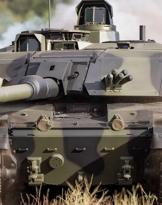"Thanks to his ferocity, the Sunni jihadist group that calls itself the Islamic State is carving out the lion's share, but al-Qaeda could prove to be the most dangerous threat in the long term." This is the conclusion of a report by 40 pages created for the Central Command for Special Operations, based at MacDill Air Force Base.
The report highlights in depth the differences between the two jihadist groups. "Al-Qaeda has implemented a long-term strategy based on popular support, facilitating locals in understanding the sharia before imposing it. Even under the tactical profile the differences are obvious. Al-Qaeda prefers the 'hit and run' strategy in the territories it could not control. The ultimate goal of al-Qaeda is to create an 'Ummah', a global Arab nation. The Islamic State, instead, has already proclaimed its caliphate, immediately imposing the brutal Sharia law, violently striking the 'apostates' as Shiites and Christians ".
The report compares al-Qaeda and its revolutionary strategy to that of Mao Tse-tung. The strategy of the Islamic State is compared to the "Doctrine of the outbreak", a revolutionary theory inspired by 'Che' Guevara and developed by Regis Debray. Mao's approach led to the People's Republic of China, while the Cuban example was attempted without success.
"Al-Qaeda wants to win hearts and minds, while the Islamic state wants to conquer with violence."
The precursor of the Islamic State was called AQI, a branch of al-Qaeda in Iraq. The terrorists used the same techniques used today by ISIS: brutal tactics such as video-recorded beheadings and short-term military actions against the US military.
"Those tactics cracked the relationship with the senior al-Qaeda leadership of the time. Al-Qaeda's then adviser and number two, Ayman al-Zawahiri, would have ordered Abu Musab al-Zarqawi, (appointed by Bin Laden emir of al-Qaida in Iraq in December of 2004) to change his modus operandi, considered counterproductive for the organization ".
"Zarqawi, acting as head of a separatist group, ignored the provisions, turning his attention even to the Iraqi Sunni population."
Zarqawi was terminated in a June 7 2006 raid near the city of Ba'qūba, 50 km northeast of Baghdad.
"AQI would have been recognized as a rebel by the main branch of the organization and expelled from the movement. A lesson that al-Qaeda has learned and used to its advantage ".
 Zawahiri's new approach calls for a ban on attacking Middle Eastern governments (when possible), because it is counter-productive in view of possible alliances. "Unlike the Islamic State, which trumpets its alliances with press releases and videos, Zawahiri maintains a low profile, establishing relations with terrorists from around the world and operating largely in the dark. In doing so he avoided the collective counterinsurgency that would be headed by the United States ".
Zawahiri's new approach calls for a ban on attacking Middle Eastern governments (when possible), because it is counter-productive in view of possible alliances. "Unlike the Islamic State, which trumpets its alliances with press releases and videos, Zawahiri maintains a low profile, establishing relations with terrorists from around the world and operating largely in the dark. In doing so he avoided the collective counterinsurgency that would be headed by the United States ".
The report also analyzes the communication technique of the Islamic State. "Powerful. No doubt. The Islamic State is present on social media with videos of torture and violence of all kinds, showing itself as a united organization against infidels and able to replace losses at an incessant pace. The ISIS social campaign has maximized the attacks of lone wolves, the cheapest and deadliest weapon on the planet due to its ability to be unidentifiable. But success on social media is a double-edged sword. Hundreds of Twitter and Facebook accounts cannot guarantee optimal operational security ”. A lot of information and some raids have been unveiled by the same social users in the pay of ISIS.
"The balance of power could turn against the Islamic state, should the number of dissatisfied jihadists increase and decide to rejoin the low operational profile of al-Qaeda."
"The key to everything are the groups that are publicly aligned with the main core of al-Qaeda, such as al-Qaeda in the Islamic Maghreb (AQIM) and al-Qaeda in the Arabian Peninsula (AQAP)". If, in fact, AQIM or AQAP were to embrace the cause of ISIS, we would be facing a crucial moment. All the assets would change and it would not be unfair to define this hypothetical coalition as the "game-changer" of the war in the Region. If al-Qaeda in the Arabian Peninsula were to line up with ISIS, then yes we could talk about a "great victory".
"But the bluster and brutality of ISIS are backfiring. The real events on the field do not correspond at all to the propaganda of the movement. Sooner or later, their killings, sexual slavery and the attempted genocide of entire minority groups will demand a price. And that's when the United States should strike with all the power and strength they have. "
The study concludes "If we do not exploit the strengths of the two organizations, the weaknesses, the strategic and tactical assets, the jihadist movement could emerge from this period of stronger competition than before".

(photo: Navy SEALs, web, US DoD)












